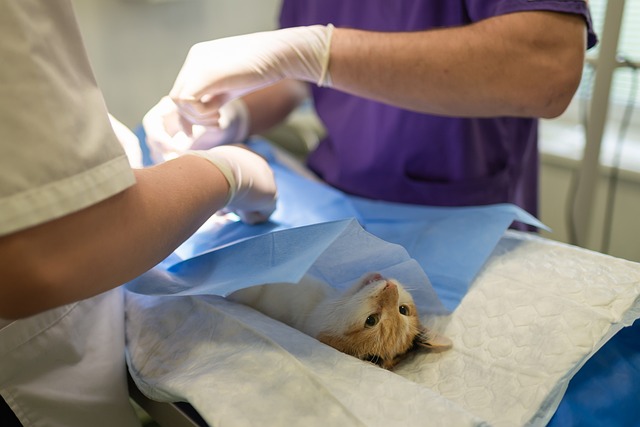Regular veterinary check-ups are a crucial part of pet care. Just like humans, pets need regular health checks to stay healthy and thrive. In this article, we’ll explore the importance of regular vet check-ups and what you can expect during these visits.
A routine veterinary check-up is essential for maintaining your pet’s overall health and well-being. During these visits, your veterinarian will perform a physical examination, take a complete medical history, and conduct various diagnostic tests to identify any potential health issues early on. Early detection and treatment of diseases can significantly improve your pet’s quality of life and even increase their lifespan.
Here are some key points to consider when it comes to regular vet check-ups:
- Puppy and Kitten Vaccinations: If you’ve recently brought a new puppy or kitten into your family, it’s essential to schedule a series of vaccinations to ensure they receive all the necessary shots. These vaccinations protect against common diseases such as parvovirus, distemper, and upper respiratory infections.
- Adult Check-Ups: Even healthy adult pets need regular check-ups to monitor their health and detect any potential issues early on. During these visits, your veterinarian will perform a physical examination, take a complete medical history, and conduct various diagnostic tests to identify any potential health issues.
- Senior Pet Check-Ups: As pets age, they become more susceptible to age-related diseases such as kidney disease, arthritis, and cognitive decline. Regular check-ups are essential for detecting these issues early on and providing the necessary care and treatment.
- Spaying/Neutering: Spaying or neutering your pet can prevent unwanted litters, reduce the risk of certain diseases, and curb undesirable behaviors such as spraying or mounting. Your veterinarian can advise you on the best time to spay or neuter your pet based on their age, size, and breed.
- Preventative Care: Regular check-ups are also an excellent opportunity to discuss preventative care options with your veterinarian. These may include flea and tick prevention, heartworm medication, and dental care.
Here’s what you can expect during a regular veterinary check-up:
The Pre-Visit Preparation: Before your visit, make sure to gather any relevant medical records, including vaccination history, test results, and previous treatment plans. This will help your veterinarian understand your pet’s current health status and provide more accurate diagnoses.
The Physical Examination: During the physical examination, your veterinarian will perform a thorough examination of your pet’s skin, coat, eyes, ears, nose, mouth, and abdomen. They may also check for any signs of illness or injury, such as difficulty breathing, vomiting, or diarrhea.
Diagnostic Tests: Your veterinarian may conduct various diagnostic tests to identify potential health issues, including:
- Fecal exams to detect parasites such as worms and protozoa
- Blood tests to evaluate kidney function, liver function, and blood chemistry
- Urinalyses to check for urinary tract infections or kidney stones
- X-rays or ultrasounds to examine internal organs and detect tumors or other abnormalities
What to Expect After the Visit: After the visit, your veterinarian will provide you with a personalized treatment plan, including any necessary medications, follow-up appointments, and recommendations for preventative care.
Summarizing the main points of this article, regular vet check-ups are essential for maintaining your pet’s overall health and well-being. By scheduling regular visits with your veterinarian, you can detect potential health issues early on, prevent diseases, and provide your pet with the necessary care and treatment to thrive.
In conclusion, regular veterinary check-ups are a crucial part of pet care. By understanding what to expect during these visits, you can take an active role in maintaining your pet’s health and well-being.
Pet Health Check-Ups Vaccinations for Pets Senior Pet Care Preventative Care for Pets Veterinary Care Tips
